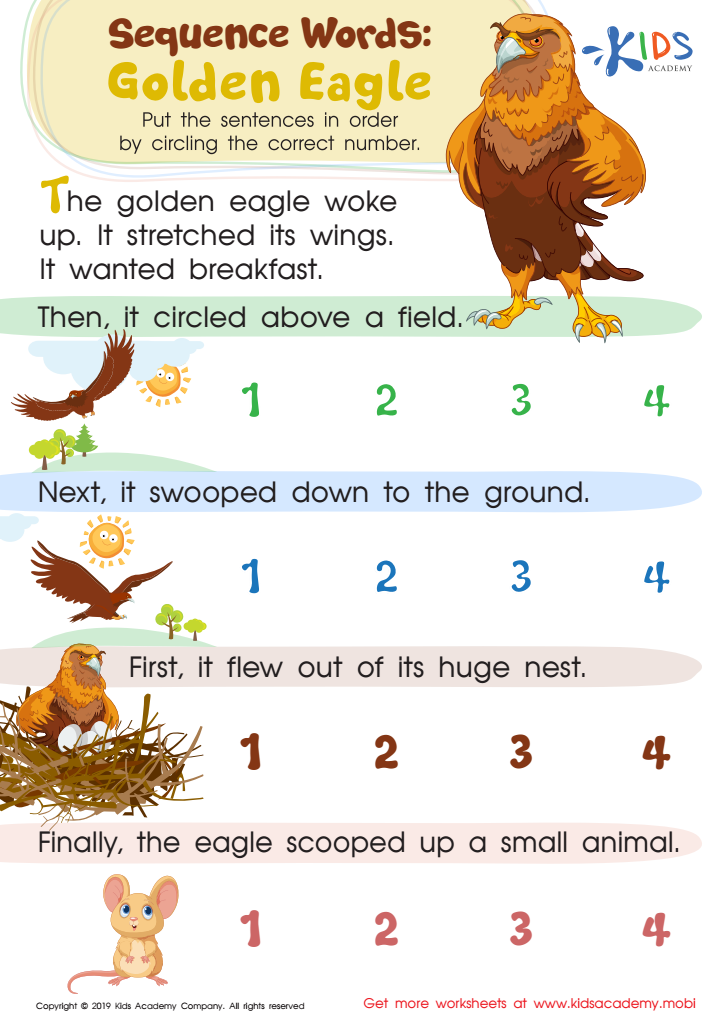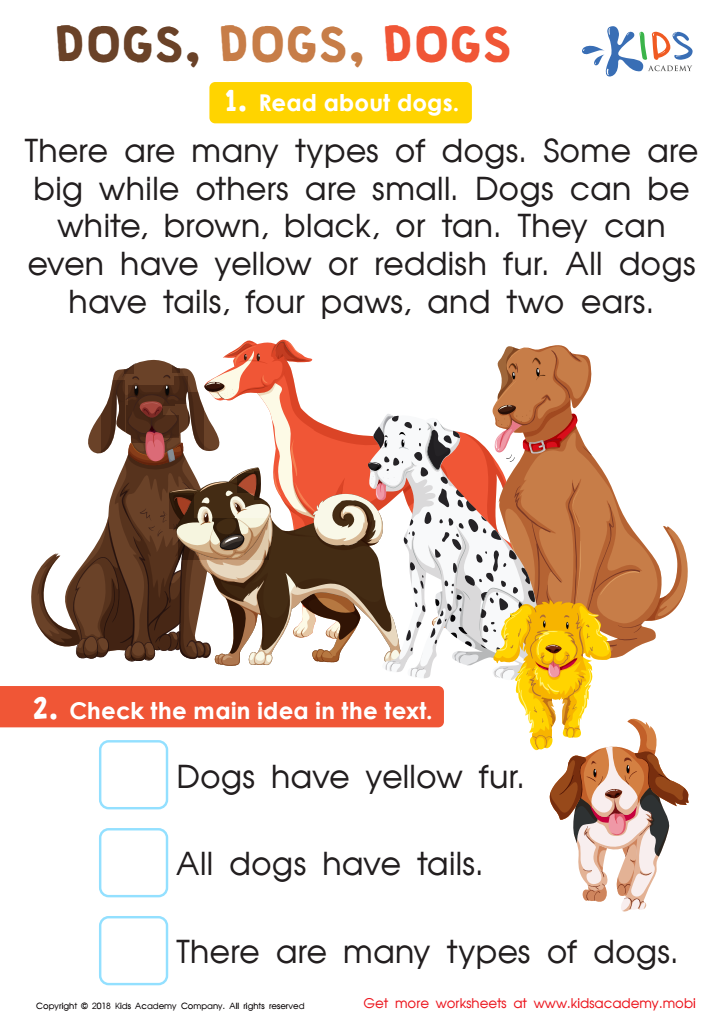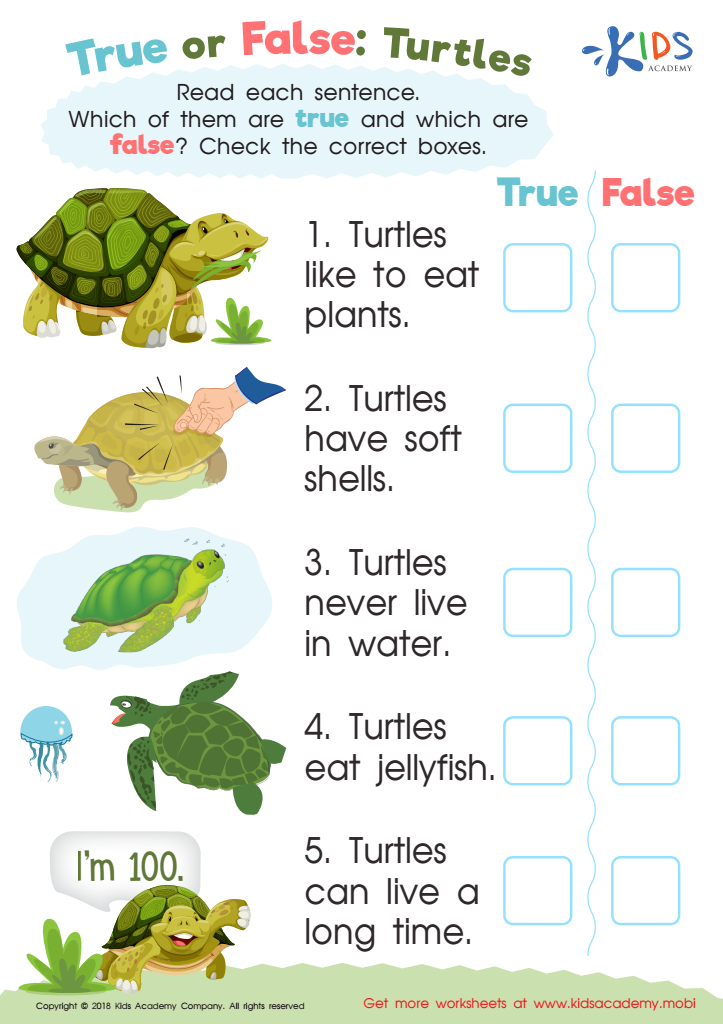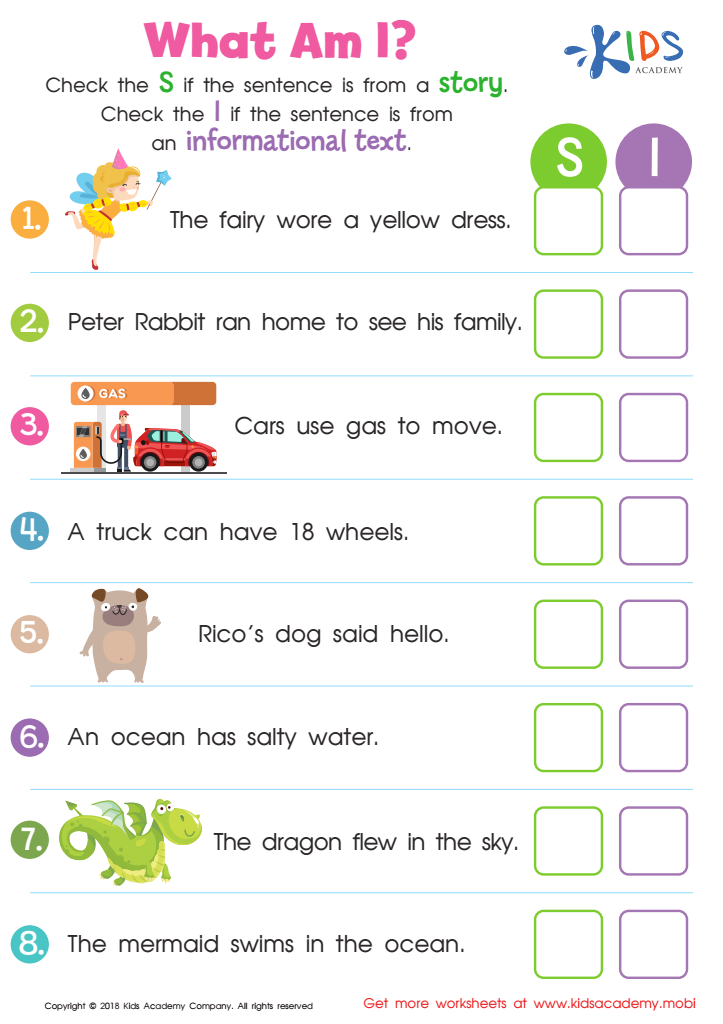Logical Reasoning Reading Non-Fiction Worksheets for Ages 6-9
4 filtered results
-
From - To
Enhance your child's critical thinking with our "Logical Reasoning Reading Non-Fiction Worksheets" designed for ages 6-9. These worksheets combine intriguing non-fiction content with engaging, thought-provoking questions to develop essential skills such as deduction, analysis, and problem-solving. By exploring different topics from science to history, young learners strengthen their comprehension and logical reasoning abilities. Perfect for both classroom use and at-home learning, these expertly crafted resources support reading confidence, encourage curiosity, and foster a love for knowledge. Ideal for making learning both fun and impactful, ensuring students build a solid educational foundation.


Sequence Word Eagle Worksheet


Dogs, Dogs Worksheet


True or False: Turtles Worksheet


What Am I? Worksheet
Caring about logical reasoning and the ability to read non-fiction for children aged 6-9 is imperative for both parents and teachers, as these skills form critical building blocks in a child’s cognitive development. Logical reasoning promotes problem-solving abilities, critical thinking, and the capacity to understand and process information systematically. This skill is essential as it aids children in making sense of the world around them, helping them to infer, deduce, and articulate thoughts logically.
Reading non-fiction books plays a pivotal role in this process. Unlike fiction, non-fiction exposes children to factual information, real-world scenarios, and diverse subjects such as science, history, and geography. This helps expand their knowledge base and stimulates curiosity, encouraging them to ask questions and seek answers. Non-fiction material also introduces children to complex vocabulary and concepts, aiding their language development and comprehension skills.
Support from parents and teachers is crucial during this stage, as guided engagement with non-fiction texts and reasoning exercises bridges the gap between understanding and application. By fostering these skills early, children are better prepared for academic challenges, enhancing their ability to think critically and learn independently. Logical reasoning and adeptness in navigating non-fiction literature establish a foundation for lifelong learning and informed decision-making.
 Assign to My Students
Assign to My Students




















